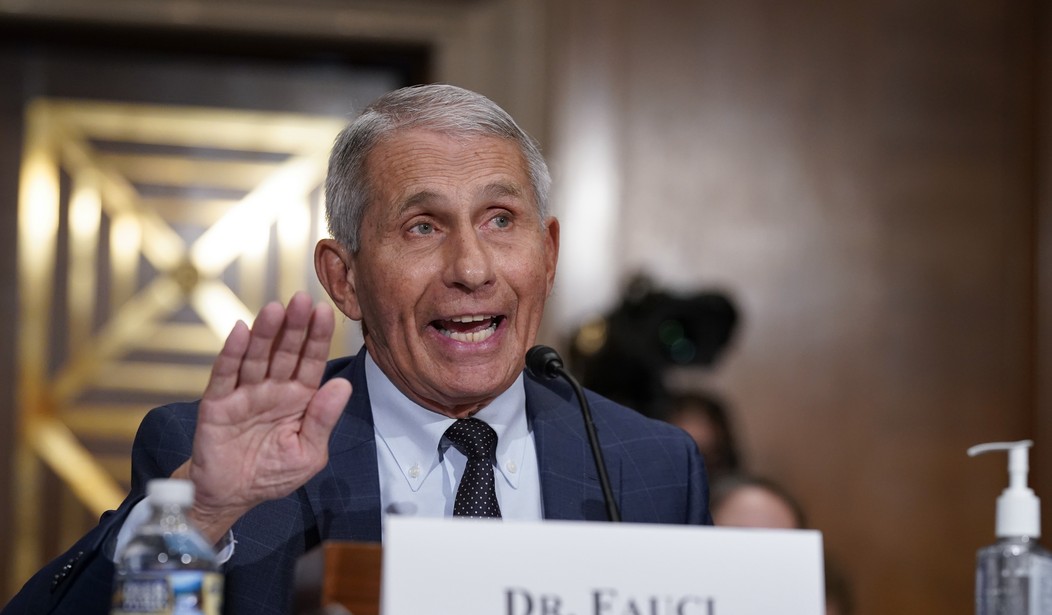The COVID-19 pandemic has exposed the degree to which America’s health care system is overregulated. The health care system is addled by cronyism and regulatory capture, perpetuated by a public and private bureaucracy invested in the status quo.
However, the concerted and sustained focus on vaccines under the Emergency Use Authorization (EUA) by the Food and Drug Administration (FDA) could be a game-changer.
To date, the FDA has approved three vaccines for COVID-19. To qualify for EUA, the vaccine manufacturers had to successfully complete initial safety and efficacy testing. It is worth mentioning that the expedited approval process may very well translate to an unprecedentedly swift (and likely) FDA approval of the Pfizer vaccine next month, with Moderna and Johnson & Johnson vaccines likely to follow suit shortly thereafter.
Unfortunately, for millions of Americans suffering from other rare diseases, the time and cost for potentially life-saving drugs and treatments to be approved is insufferable and borders on cruel and unusual punishment.
On average, it takes 12 years and $2.6 billion to bring a new drug from lab to market. For many startups, the funding barriers for these rigorous clinical trials are insurmountable. Of course, it is a reasonable mandate that the FDA approve safe and effective drugs for market.
Yet, as exemplified during the COVID-19 pandemic, it is possible to expedite approval and bring safe and effective drugs to market faster.
Patients suffering from rare diseases like amyotrophic lateral sclerosis (ALS) are asking for the same consideration from the FDA. The three COVID-19 vaccines that were approved in record time set a strong and affirmative precedent for other groups of patients; hopefully, this is a new standard that will inspire reform of the current drug approval process, making patient-centered care a top priority that is shielded from bureaucratic delays.
A recent study found that during the pandemic, more than 40 percent of patients delayed or avoided medical procedures and appointments out of fear of contracting COVID-19, further exposing how accessibility to care strains the American health care system.
Telehealth services, long advocated by American health care system observers, became an option almost overnight. Telehealth services, quite literally, brought health care services into patients’ hands via an app or over the phone.
American innovation has led to technological advancements like telemedicine, yet government barriers, including licensing laws favoring politically connected professions, limit the use of telemedicine. The rollback of regulations during the pandemic at both the state and federal levels was crucial during the crisis. Expansion and wide adoption of telehealth services should be made permanent and expanded. Telehealth services bring care to hard-to-reach populations and will ultimately save lives while lowering costs for providers and patients.
Certificate of need (CON) laws saw wide repeal and suspension during the COVID-19 pandemic as well.
These laws create a barrier to entry for emerging health care facilities and treatments or established facilities hoping to expand. These laws lead to higher costs, less access, and lower quality of care.
According to the Kaiser Family Foundation, health care costs are 11 percent higher in states operating with CON than those without. Similarly, the number of hospital beds, personal protective equipment, and health care facilities were limited during the pandemic because of these intrusive laws.
States operating with CON have fewer hospitals and ambulatory surgery centers. As a result of the laws, tragically, rural communities have been hit the hardest due to restrictions on new facility development where they are most needed. This is why 24 states that enforce CON laws either suspended some portion of them or enabled emergency provisions to meet the needs of patients during the pandemic.
During this unprecedented time, policymakers and health care professionals used the COVID-19 pandemic as reason to review and reassess the utility of our overburdened and regulated health care system.
The pandemic allowed for introspection into our nation’s health care system, and what we found is that deregulatory measures should be made permanent once we return to normal. It was encouraging to see state legislators this past legislative session make strides toward reform or repeal of these laws.
The silver lining of the COVID-19 pandemic is the exposure of the flaws in our health care system, providing the opportunity for improvement.
Christina Herrin ([email protected]) is government relations manager at The Heartland Institute, a nonpartisan, free-market think-tank headquartered in Arlington Heights, Illinois.













Join the conversation as a VIP Member